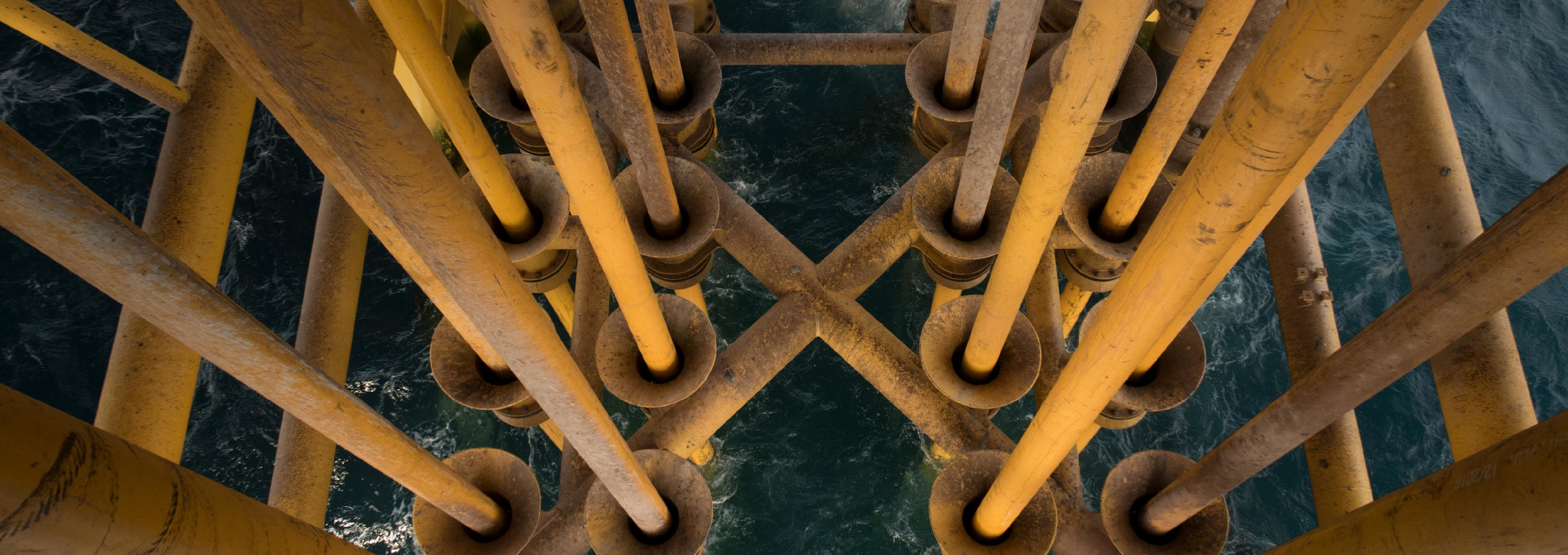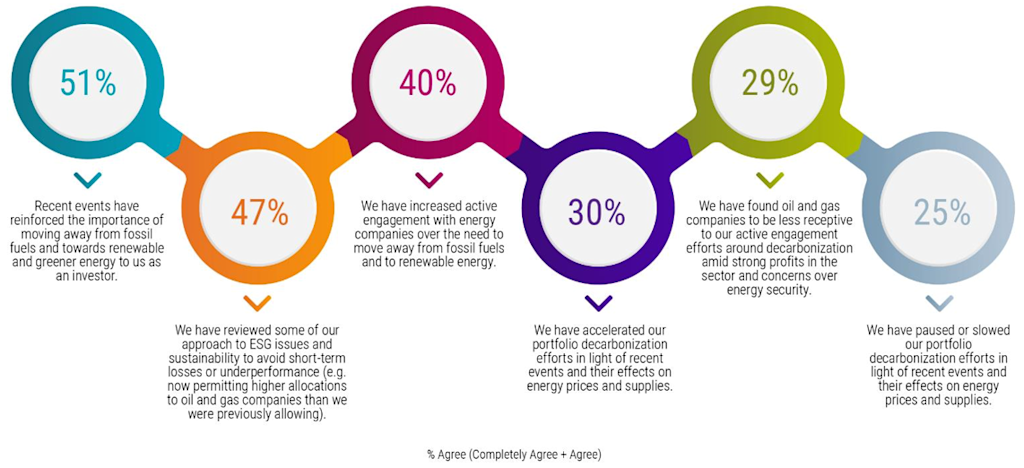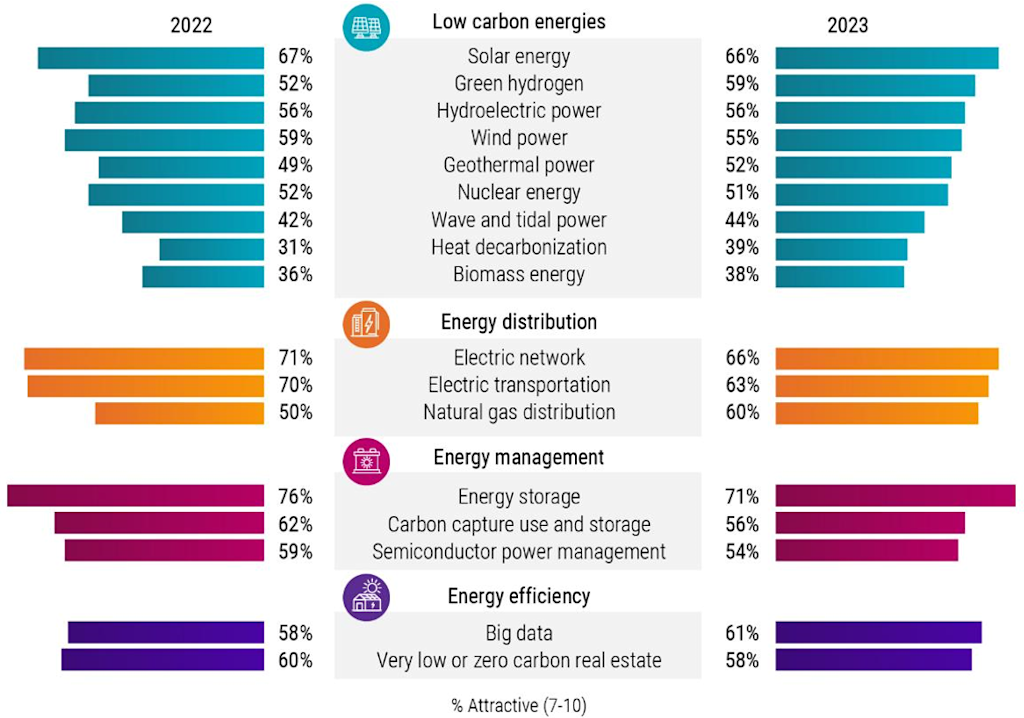

Global Climate Survey - The fossil fuels dilemma
Investors face a dilemma in wanting to transition from fossil fuels while also needing to retain exposure to oil and gas companies. This contradiction was one of the takeaways of the Robeco Global Climate Survey, which included the aftermath of the energy crisis triggered in 2022.
概要
- Investors raise allocations to oil and gas to avoid index underperformance
- Divestments continue amid greater belief in expanding renewable energy
- Net-zero campaigns continue while use of engagement gains in importance
One of the few beneficiaries of the Russia-Ukraine war was the energy industry, as oil and gas prices hit record levels last year. Since the energy sector accounts for 5% of the two most frequently followed benchmarks, the MSCI World Index and the S&P 500, avoiding the fossil fuel behemoths would have caused equity portfolio underperformance in 2022.
Asset managers were subsequently forced to maintain or even increase their holdings in the energy giants, lest they broke their fiduciary duty to earn returns for clients, while also endeavoring to meet commitments to net-zero carbon emissions by 2050 at the same time.
But the good news is that the Ukraine crisis has increased investors’ belief that renewable energy, particularly from solar power and green hydrogen, can both end reliance on fossil fuels and their related emissions, while also improving energy security by reducing dependence on Russian gas.
And the longer-term trend committing to portfolio decarbonization remains undimmed, backed by a large increase in using active ownership techniques such as engagement to encourage oil and gas companies to switch to renewables.
“The energy crisis of 2022 showed in a very tangible way something we knew all along: that the road to net zero is non-linear, uneven and disruptive,” says Lucian Peppelenbos, Climate and Biodiversity Strategist at Robeco.
“The energy price hikes, in conjunction with post-Covid recovery and other factors, triggered a cost-of-living crisis that will need to be carefully managed in order to maintain popular support for the green transition.”
“It showed very clearly that we can’t phase out fossil fuels without reducing the demand for them. There needs to be a proper balance between supply and demand measures in order to sustain a successful transition to net zero that avoids excessive shortages and inflationary pressures.”
Fear of missing out…
The energy price spike throughout 2022 resulted in 38% of European investors admitting they have actually been allowing higher allocations to oil and gas companies in the short term to avoid underperformance. This rose to 48% in North America and 59% in the Asia-Pacific region. Higher exposure to fossil fuels were though viewed as being only temporary, while the energy crisis lasts.
What, if any, impact have the increases seen in energy prices had on your organization’s approach to portfolio decarbonization so far?

Only 30% of the 300 global investors surveyed have accelerated their portfolio decarbonization efforts in the light of recent events, partly to avoid the higher energy-related costs, while 25% have paused or slowed it. Almost half of investors said they had reviewed some of their approaches to ESG to avoid short-term underperformance.
Investors did, however, feel they should make a bigger effort to use their positions as shareholders to change business models. Some 40% have increased engagement with oil and gas companies over the need to transition towards renewables, though 29% said they found them to be less responsive due to the strong profits they were making, and amid the wider need for energy security.
… but still divesting
The underlying trend remains that average divestment levels from carbon-intensive assets have increased, in line with net-zero pledges. Institutional investors have on average dumped 13% of high-carbon assets over the last 12 months, while wholesale investors using traditional model portfolios have divested an average of 27%. Both figures have risen from 7% for institutional and 8% for wholesale investors in 2022, perhaps as a result of playing catch-up on reducing exposures to thermal coal.
Understanding which firms are credibly transitioning is critical to identifying investment opportunities, engagement activity and divestment decisions. However, only 27% of investors said they have obtained a forward-looking view of what emissions pathway their investee companies are on. These forward-looking metrics will become more important in navigating the energy transition, as they provide a more accurate view of not only the supply of fossil fuels, but also the demand for them in sectors such as heavy industry, transport and buildings.
The biggest increase in divestments from oil and gas is set to come from investors who are in the process of committing to net-zero targets, rising from 14% divesting today to 39% planning to do so over the next two years. More than a quarter of this latter group are also set to become active owners of oil and gas companies, using engagement as a carrot for phasing out fossil fuels.
Which of the following is closest to your organization’s investment approach to investing in oil and gas companies using fossil fuels today, and in the next two years?

Investors with no net-zero plans were the most likely to continue investing in oil and gas companies, so long as they provide good returns today. But in the next two years, an increasing number said they will take a cautious approach to this sector and become an active owner, pushing for a move away from fossil fuels and towards renewable energy.
The sun shines out of solar
Some 51% of global investors said the Russia-Ukraine war has reinforced the importance of moving away from fossil fuels and towards renewable energy. This belief is higher in Europe (54%) and APAC (60%). Solar continues to be the preferred source of renewable energy by two-thirds of global investors, followed by green hydrogen, traditional hydroelectric power and wind power.
Green hydrogen, where the fuel is created using electrolysis powered by renewable energy, is particularly seen as a long-term solution for heavy transport including HGVs and shipping. Nuclear power remains popular among half of all investors, and interest in biomass energy has increased.
Investors are also looking to invest in energy networks, storage systems and efficiency rather than in energy production, the survey revealed. In the energy distribution sector, more investors are identifying opportunities in natural gas distribution. This is driven most by 69% of investors in North America, where production is set to reach record highs in 2023, and by 66% in APAC, where growth in demand is expected to be greatest over the next two decades. Only 46% of European investors viewed this area as a strong source of investment opportunitie.
Which of the following is closest to your organization’s investment approach to investing in oil and gas companies using fossil fuels today, and in the next two years?

Scope 1, 2 and 3
Meanwhile, the march towards net zero by 2050 requires portfolio decarbonization of about 7% per year, cutting Scope 1, 2 and 3 emissions. Scope 1 emissions are generated by the company; Scope 2 are caused by the energy needed to make the product. Scope 3 occurs across the lifetime of the product, such as the exhaust fumes from a car, and are much more difficult to measure.
While all industries generate Scope 1 and 2 emissions, the energy industry is responsible for a significantly high proportion of Scope 3. These primarily emanate from domestic gas appliances and petrol-driven transport. A house gas boiler or a family car, for example, will generate Scope 3 emissions for decades. Turning to electric appliances and cars is seen as the long-term solution.
A significant number of investors have now conducted portfolio carbon impact assessments and portfolio footprinting. Some 57% of European investors are doing this for Scope 1 and 52% for Scope 2, compared with 46% in North America for the former and 33% for the latter. However, only 20% of global investors are measuring the more important Scope 3 emissions.
Accessing data on Scope 3 remains difficult, given its complexity and voluntary disclosure requirements – but the International Sustainability Standards Board (ISSB) has announced plans to make Scope 3 disclosures mandatory in its new directive due later in 2023.
獲取最新市場觀點
訂閱我們的電子報,時刻把握投資資訊和專家分析。
Important information
The contents of this document have not been reviewed by the Securities and Futures Commission ("SFC") in Hong Kong. If you are in any doubt about any of the contents of this document, you should obtain independent professional advice. This document has been distributed by Robeco Hong Kong Limited (‘Robeco’). Robeco is regulated by the SFC in Hong Kong. This document has been prepared on a confidential basis solely for the recipient and is for information purposes only. Any reproduction or distribution of this documentation, in whole or in part, or the disclosure of its contents, without the prior written consent of Robeco, is prohibited. By accepting this documentation, the recipient agrees to the foregoing This document is intended to provide the reader with information on Robeco’s specific capabilities, but does not constitute a recommendation to buy or sell certain securities or investment products. Investment decisions should only be based on the relevant prospectus and on thorough financial, fiscal and legal advice. Please refer to the relevant offering documents for details including the risk factors before making any investment decisions. The contents of this document are based upon sources of information believed to be reliable. This document is not intended for distribution to or use by any person or entity in any jurisdiction or country where such distribution or use would be contrary to local law or regulation. Investment Involves risks. Historical returns are provided for illustrative purposes only and do not necessarily reflect Robeco’s expectations for the future. The value of your investments may fluctuate. Past performance is no indication of current or future performance.

























